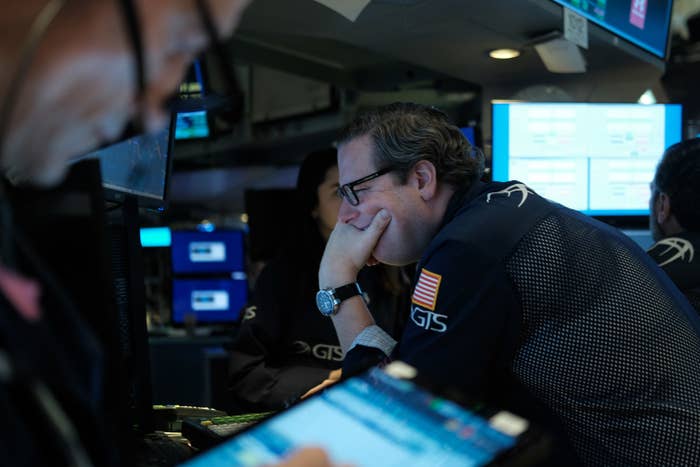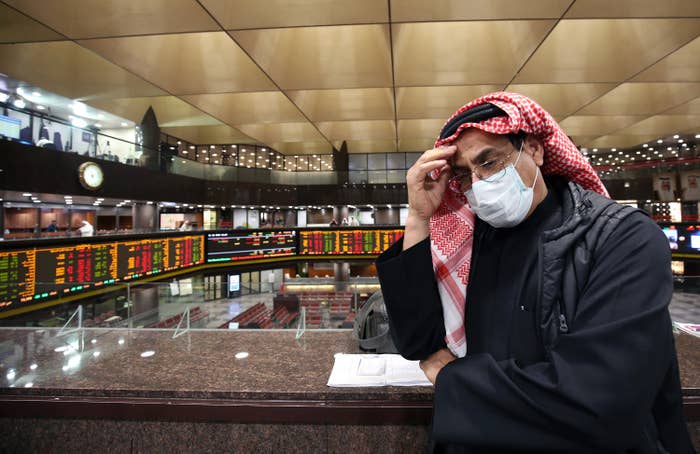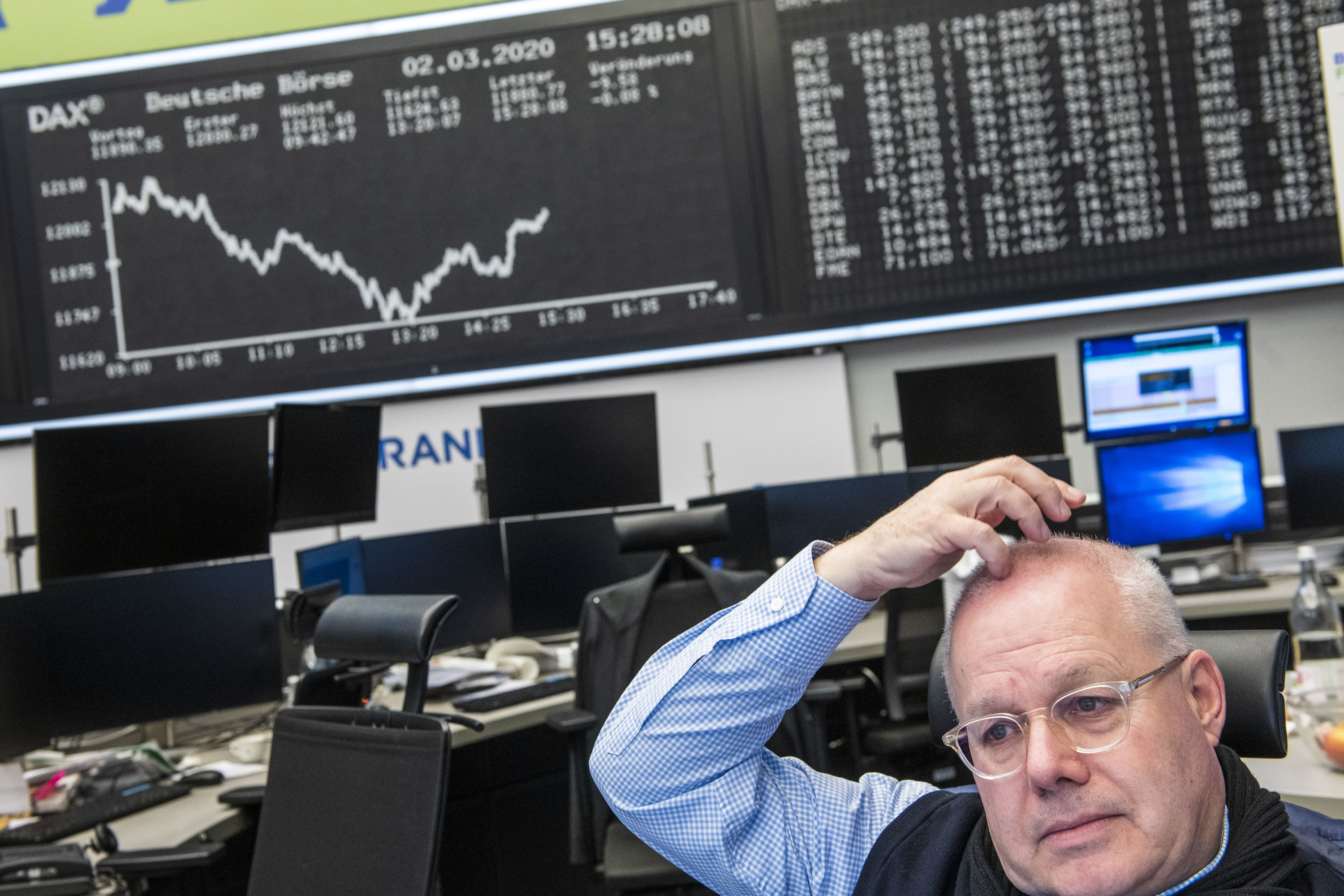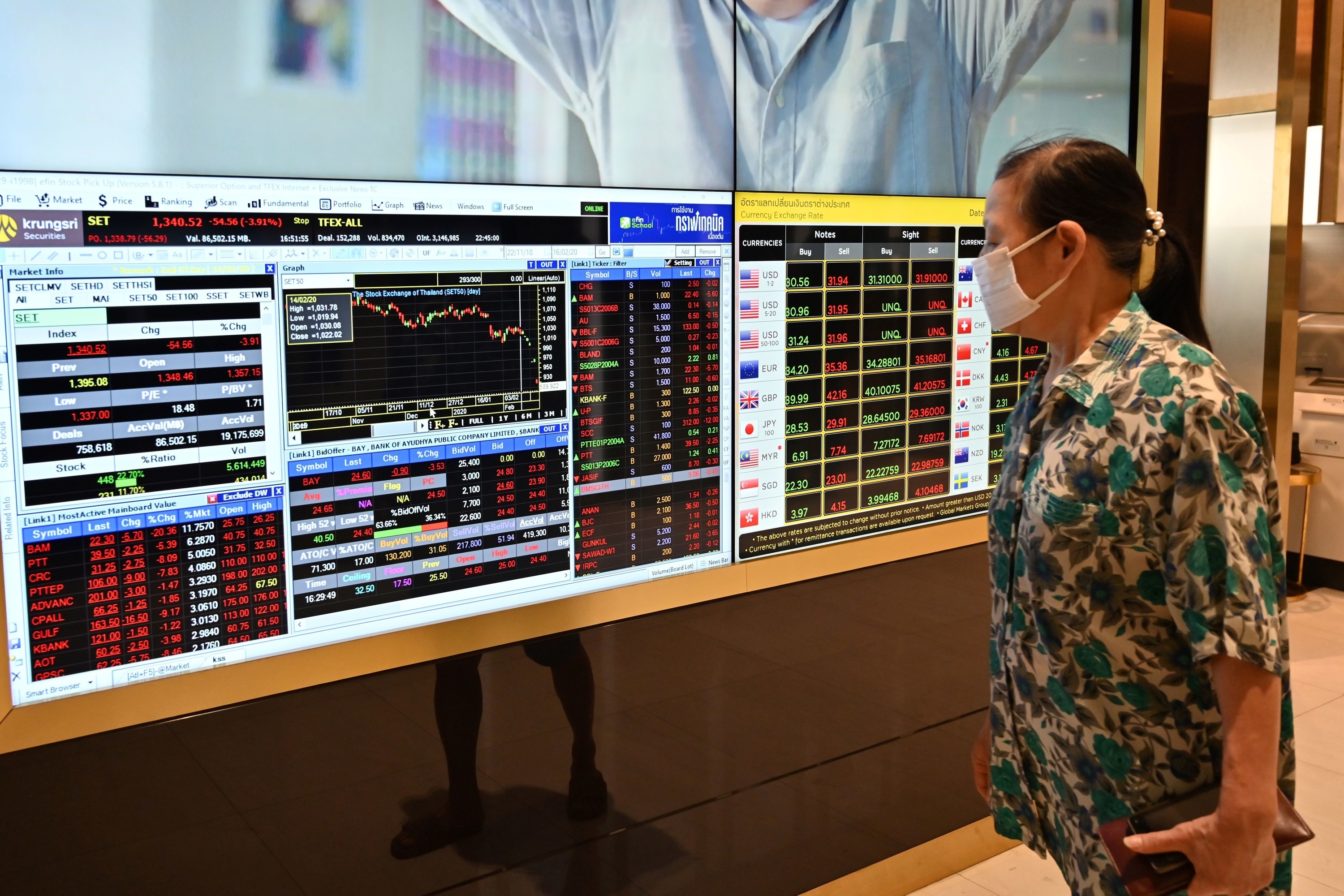
"Stock market crash!" read the panicked headlines last week, after the spread of the coronavirus continued with outbreaks of COVID-19, the disease the virus causes, in Iran, Italy, Japan, South Korea, and the United States.
The resulting fear caused the US stock market to have its worst week since the start of the 2008 recession.
But should people be stressing about the market upheaval? Is your money at risk? We look at the experts for advice on how the coronavirus is affecting the markets.
What exactly is going on and why is the stock market freaking out?
Markets really don't like uncertainty, because it makes it hard for businesses to plan. So the spread of a potential global disease fuels huge panic.
Investors have been selling their stock to get their money out of the market, or into "safer" investments. Last week $5 trillion was wiped from global financial markets.
The Dow — short for the Dow Jones Industrial Average, an index of 30 major blue-chip stocks that is often used as an indicator for the market itself — had its single biggest one-day drop in history, falling 1,191 points on Thursday.
But the drop felt even more dramatic because two weeks earlier the Dow hit a record high.
"Part of the stock market decline is the result of stocks being overvalued," economist Mark Weisbrot, codirector of Center for Economic and Policy Research, a Washington think tank focused on economic policy, told BuzzFeed News — meaning the drop was partly just the market correcting itself.
While it was the biggest point drop in history, there have been much larger drops in terms of percentage of the Dow overall. For some historical comparison, the Dow dropped 4.4% last Thursday, however during the Wall Street crash of 1929, it dropped 13% one day and 12% the day after.
Plus, it's not like years and years of investment gains got wiped out last week.
"The stock market saw its worst week since the financial crisis as coronavirus fears gripped markets," said Greg McBride, chief financial analyst at Bankrate.com, in a statement. "But the market is still higher than it was as recently as last August."

Which stocks are being most affected?
All of them! But oil stocks plummeted as travel has been cut, factories across China closed, and manufacturing and deliveries halted.
"For now, what we know for sure is that the month of February will record the worst oil demand contraction since the Great Recession," said Claudio Galimberti, head of demand, refining, and agriculture analytics at S&P Global Platts, a financial information company, in a statement.
"We also know that global aviation will be hit very hard across Asia and take months to get back in shape," said Galimberti.
Many companies in the US — including Twitter, CNN, and Amazon — have said they are cutting employee travel to try to reduce the disease's spread.
How will COVID-19 outbreaks across the world affect the US?
The US stock market is often pretty robust, even when other economies are struggling.
"The US is not completely insulated, of course, from the global economy, but it's nowhere near as dependent as most people think it is," said Weisbrot, noting that imports only count for around 15% of the US GDP (gross domestic product, the value of all goods and services produced annually).
That means that 85% of what we consume in this economy is made in the US and makes the country less vulnerable to international upheaval.
People may think of manufactured products, "but most of what we consume is services," such as health care or transport, noted Weisbrot.
But US economic policies can determine how much other countries suffer from the coronavirus.
Weisbrot noted that US sanctions against Iran and Venezuela may contribute to the spread of the virus there, noting that in Venezuela "it’s the sanctions that’s keeping this economy from having the basic infrastructure, including water, for people to be able to avoid a public health nightmare."

Is the media just panicking?
On a day-to-day basis, there aren't stories written about the markets having an OK day, so we usually only read about either record highs or scary crashes.
"I got a note today from a reporter saying, 'What are you going to do today to calm the markets?'" Mick Mulvaney, the director of the Office of Management and Budget, said at the Conservative Political Action Conference on Friday. "Really what I might do today to calm the markets is tell people to turn their televisions off for 24 hours."
Weisbrot noted that the focus on the markets by the media was misguided, because "the stock market is not the economy, and it shouldn’t be treated so much as such."
And it's also investors who are panicking.
"There’s a whole psychological component to all of this," said Weisbrot.
Frank Cappelleri, an executive director at Instinet, told the Wall Street Journal the market is being swayed by "human emotions."
How does this affect me, a normal person and non-billionaire?
"The majority of people don't own any stock at all, even in retirement accounts," said Weisbrot. He noted that around 10% of people own around 80% of stocks, so only a small percentage of people — the wealthiest — are truly affected when a stock market crash happens.
A Gallup poll last September found just 55% of Americans own stocks, including in a 401(k) or IRA, the two most common forms of retirement accounts.
Weisbrot also noted that rising stock prices are not necessarily a good thing for everyone, because it may reflect an increase in profits beneficial to a shareholder, but not reflect an increase in wage to a worker at the company.
"The main concern should be actually to public health," said Weisbrot. "The two are related, but if you get the public health part right, the stock market will take care of itself."

Is my 401(k) or retirement savings account screwed?
Retirement accounts are invested in the stock market because historically that's the safest way to ensure that your money grows. But retirement accounts are also usually very diversified — meaning they are split between a wide variety of stocks, bonds, and other investments to ensure they can handle market uncertainty.
Young people in particular should not worry or try to cash out their retirement investment funds, experts said. Because they are built to weather the drops over many years, there is plenty of time to make up for any losses, and taking out money early will ensure a huge loss in compound interest.
"If you’re in there for the long haul, the conventional wisdom is basically true," said Weisbrot.
Plus, it's a good opportunity to "buy the dip" — also known as buying when prices are low.
What's going to happen next?
No one knows yet! A major reason for the market's volatility is uncertainty.
But, stocks go up, and stocks go down, and then, usually they go up again. And on Monday, the Dow closed back up 1,200 points.
So wash your hands, and try to stay calm.
"If it was easy to predict," said Weisbrot, "I would be rich and so would you."
